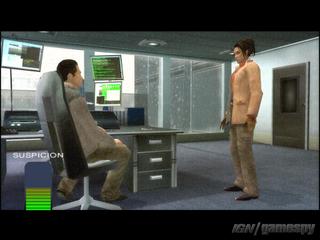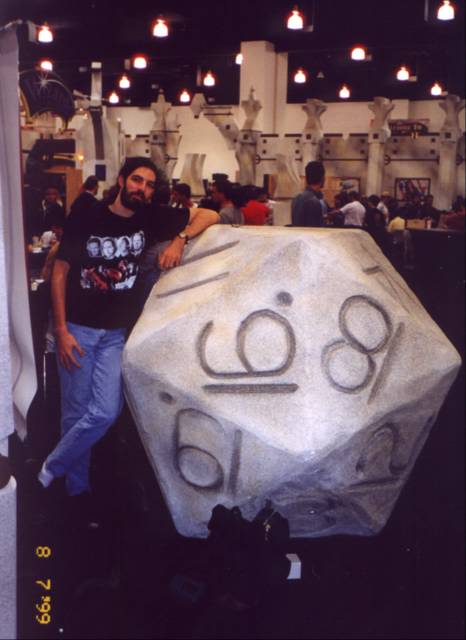Crash
On the surface, Crash is a movie about racism. Everyone in the film says, does, or thinks something racially motivated at some point during the movie. It is also about how racism, violence and hatred are so prevalent in our lives that they can become second nature. At one point on of the characters reflects "I wake up everyday feeling angry and I have no idea why."
This is the movie that Magnolia should have been. The events of Crash take place over a 24 hour period in the melting pot that is LA. Several characters lives and stories play out here and they intertwine frequently. It's a sometimes violent film, but it's more about the terrible things we say and think about each other and how isolated we can become. There are no clear cut heroes in this film; evil is not so easily defined. This is one of the film's best achievments. It'll have you hating characters one minute then wondering about them the next. It isn't very often I get to see a movie where my heroes and villains aren't neatly packaged and labelled for me. I enjoyed it.
Among the characters are a white cop (Matt Dillon) who pulls a couple over not so much because they're 'having a little adult fun' while driving but because the driver is black and his light skinned wife is mistaken for white. The cop then proceeds to humiliate and violate the couple in front of his shocked partner (Ryan Phillippe.) There is the black TV sitcom director who is told that one of his actors doesn't sound 'black enough.' Problem is, the director himself doesn't 'sound black' either. There's the rich, white housewife who insists to her husband that they have their locks changed again in the morning when she sees that the man changing their locks is a young hispanic man with tattoos and a shaved head. "Could you please ask them not to send a gang member next time?" she says. Whether or not he is a gang member isn't the relevant question. There's the pair of young black men who complain about how they're looked at and treated but eventually their behavior perpetuates that discrimination. He complains that the black waitress gave them bad service because she knows black people don't tip for shit. "Oh yeah? What kind of tip did you leave?" to which his friend replies "...I'm not tipping for that kind of service."
Every character in the story is both guilty of racism and a victim of it. Kudos to Paul Haggis for making a powerful film about racism that is neither preachy nor sappy. Crash is a powerful, effective piece of entertainment which will make most viewers think about themselves and the world around them. I wholly reccomend this movie.
Crash earns 4 wombats out of 4.




This is the movie that Magnolia should have been. The events of Crash take place over a 24 hour period in the melting pot that is LA. Several characters lives and stories play out here and they intertwine frequently. It's a sometimes violent film, but it's more about the terrible things we say and think about each other and how isolated we can become. There are no clear cut heroes in this film; evil is not so easily defined. This is one of the film's best achievments. It'll have you hating characters one minute then wondering about them the next. It isn't very often I get to see a movie where my heroes and villains aren't neatly packaged and labelled for me. I enjoyed it.
Among the characters are a white cop (Matt Dillon) who pulls a couple over not so much because they're 'having a little adult fun' while driving but because the driver is black and his light skinned wife is mistaken for white. The cop then proceeds to humiliate and violate the couple in front of his shocked partner (Ryan Phillippe.) There is the black TV sitcom director who is told that one of his actors doesn't sound 'black enough.' Problem is, the director himself doesn't 'sound black' either. There's the rich, white housewife who insists to her husband that they have their locks changed again in the morning when she sees that the man changing their locks is a young hispanic man with tattoos and a shaved head. "Could you please ask them not to send a gang member next time?" she says. Whether or not he is a gang member isn't the relevant question. There's the pair of young black men who complain about how they're looked at and treated but eventually their behavior perpetuates that discrimination. He complains that the black waitress gave them bad service because she knows black people don't tip for shit. "Oh yeah? What kind of tip did you leave?" to which his friend replies "...I'm not tipping for that kind of service."
Every character in the story is both guilty of racism and a victim of it. Kudos to Paul Haggis for making a powerful film about racism that is neither preachy nor sappy. Crash is a powerful, effective piece of entertainment which will make most viewers think about themselves and the world around them. I wholly reccomend this movie.
Crash earns 4 wombats out of 4.













